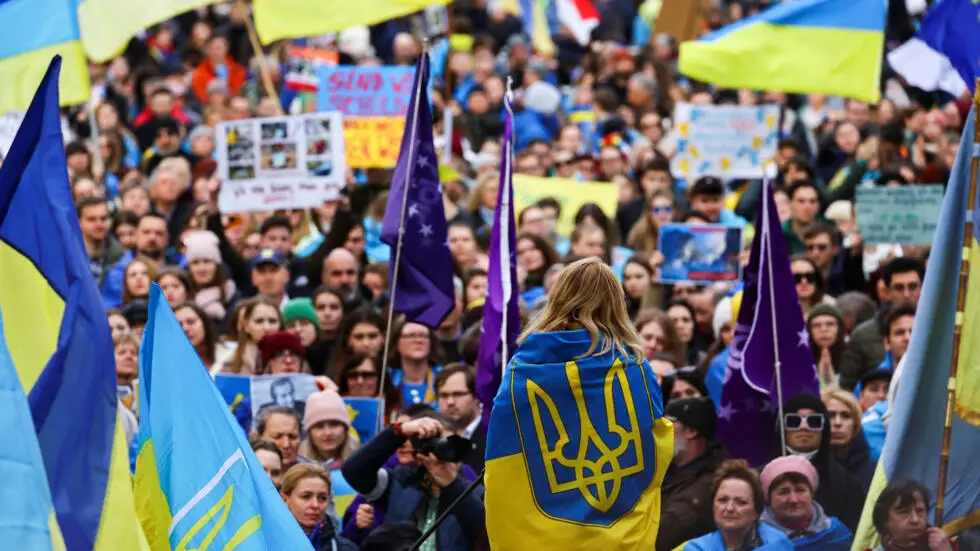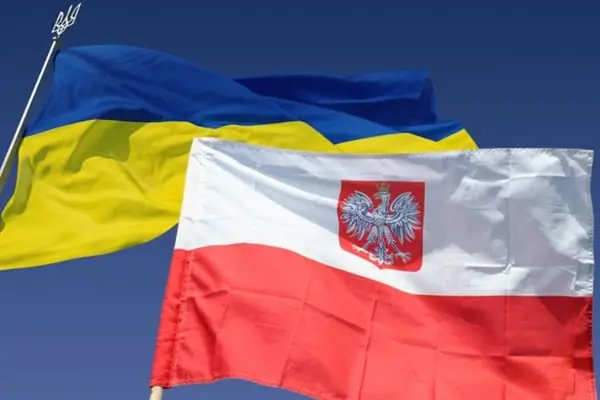The Division of Ukrainian Society: Military, Civilians, and Draft Dodgers — How to Distinguish Manipulation from Truth

What Mistakes by the Authorities Have Led Us to This Point?
Today, Ukrainian society is divided into several categories: military personnel, civilians, draft dodgers, and others. In this division, how can one recognize manipulation when distorted information is presented and understand where the truth lies? What signs indicate false claims, and what allows us to distinguish them from reality?
Who are the "Draft Dodgers", and Where Did They Come From?
This topic is extremely contentious and has sparked intense debates in society. To understand it more deeply, we need to examine how it all began.
On April 24, 2024, it was revealed that consulates in various countries were suspending certain actions regarding Ukrainians residing there. This led to restrictions on their stay, even though the mobilization law had not yet come into effect. The law was to take effect on May 18, and consular restrictions were expected to begin from that date. However, they were imposed starting April 24, which caused a strong reaction not only among citizens abroad but also among many Ukrainians within the country.
So, who are these draft dodgers? First, let's define the term linguistically, then contextually, and finally explore its potential implications. A "draft dodger" is someone who evades something. In times of war, this refers to a person eligible for military service who has avoided receiving a summons to verify their military records or evaded conscription. This carries administrative or criminal liability. Under the newly adopted mobilization law, it seems that criminal liability has been removed.
For some citizens, draft dodgers are viewed as marginalized members of society. They believe these individuals pose a threat to national security. Meanwhile, on social media, particularly TikTok, some support draft dodgers, leading to a new trend — "The Daily Life of a Draft Dodger".
Users avoiding mobilization share videos of their carefree lives abroad, calling themselves "draft dodgers". They post footage of leisure activities, walks, and dining in restaurants, with captions like, "Every weather is good when you're a draft dodger" or "Woke up — dodged".
This content has sparked mixed reactions: some commentators support their life away from the war, while others — especially the families of military personnel — are outraged by such posts, considering them disrespectful to those defending the country.
Main Reasons for the Lack of Support for Mobilization in Society
One of the main reasons for the negative reaction to mobilization is the problems with the work of Territorial Recruitment Centers (TRCs). Every day in Ukraine, news emerges about scandals involving these centers. For example, in Odesa, a man pretended to be dead to avoid mobilization.
One incident in Odesa went viral: a man played dead upon seeing a TRC representative. The behavior of the person in uniform was also strange — he simply walked away, leaving the person lying on the ground.
Recently, in a TRC in the Rivne region, a man tried to cut his veins with a key to avoid mobilization. He had no military records and was taken to the Varash RTC to clarify his information. TRC staff confiscated the key and sent him to a medical commission, which he refused to undergo. Afterward, he was hospitalized but is now wanted by the authorities. It turned out that he had previously been convicted of illegal drug possession.
In Mukachevo, a video surfaced showing a man being "handled" in the street. It turned out that he had threatened police officers with a knife, prompting a harsh response. The TRC in Zakarpattia noted that traveling without military records is prohibited, and threats to law enforcement are a criminal offense.
Scandals involving TRCs continue. Recently, in Zakarpattia, a man cut his veins in the center's restroom, claiming he was abducted by border guards and TRC staff. The Zakarpattia Regional TRC confirmed that he was listed as partially fit for service.
These are just some of the many scandalous cases involving TRC employees, who have also repeatedly been implicated in high-profile corruption scandals. Since February 24, 2022, the State Bureau of Investigation (SBI) has been investigating 408 criminal cases related to the activities of territorial recruitment and social support centers. Already, 73 individuals have been notified of suspicion, 37 indictments against 61 people have been sent to court, and 10 have received guilty verdicts. The court confirmed unlawful benefits amounting to 114 million UAH, with damages of 19 million UAH, of which the SBI recovered 6.5 million UAH. The property of those involved has been seized to the tune of 264 million UAH.
Meanwhile, Many Soldiers Support Mobilization
The soldiers who have been defending Ukraine on the front lines since the beginning of the invasion are exhausted and in need of rotation. Senior Lieutenant Oleksandr Yabchanka of the "Honor" Company of the 1st Separate Mechanized Battalion "Wolves of Da Vinci" emphasized that even after a year and a half of continuous combat, the military remains on the front lines despite fatigue. The situation needs attention, as Yabchanka noted, soldiers could lose faith in justice due to the lack of rotation.
Former spokesman of the Ukrainian Armed Forces, Oleksandr Kovalenko, reported that as of August 2023, there were 1.3 million personnel in the Ukrainian Armed Forces, but over 700,000 of them had never been on the front lines. Currently, about 150,000 fighters are on the front lines, many of whom have not been rotated for nearly two years. This means that only 10% of the total defense forces are actively participating in combat operations.
In Ukraine, there have been repeated rallies calling for the demobilization of soldiers who have been on the front lines for over two years. The public and military families demand rest and rotation for the soldiers who have spent more than two years defending the country. These rallies underscore the importance of moral and physical recovery for the military to maintain their fighting spirit and effectiveness.
Conclusion
To find a compromise between different categories, society needs to recognize that both the military and civilians have their legitimate needs and problems. It is essential to avoid manipulation and misinformation, understand that draft dodgers may have various motives, and acknowledge that corruption scandals can exacerbate the situation.
Finding a balance between the needs of the military and civilians, ensuring fair conditions for everyone, and addressing corruption issues within the system can help create a more just and effective approach to mobilization and front-line actions. Public demonstrations calling for demobilization and rotation should be seen as a call to action, not a reason for further societal division.
To find a compromise between the military and draft dodgers, citizens should follow several key recommendations:
Information and Education: Engaging in understanding the situation through official information sources will help avoid manipulation and falsification. Citizens should learn to distinguish reliable information from distorted facts.
Support for Transparency: Promoting transparency in TRC operations and combating corruption. Public initiatives and monitoring of these bodies' activities can help ensure fairness in the mobilization process.
Understanding Military Needs: Promoting awareness of the difficulties faced by the military. Supporting actions that call for rotation and rest for soldiers can help address issues related to moral and physical recovery.
Neutrality and Tolerance: Avoiding stereotypes and prejudices against draft dodgers. Each person has their own circumstances and motivations, and it's important to approach the issue with understanding and empathy.
Engagement in Public Dialogue: Actively participating in public discussions and proposing constructive solutions. Understanding and considering the needs of all parties can help find a balance between the military and civilians.
Support for Social Initiatives: Supporting social programs that provide assistance to both the military and civilians can improve the situation. This includes both financial and psychological support.
Active Participation in the Political Process: Voters should be active in shaping policies that affect the situation with mobilization and the military. Timely appeals to government representatives with proposals and complaints can help improve the situation.
Maintaining dialogue and seeking solutions that consider the interests and needs of all parties will help create a fair and effective mobilization system that meets the demands of the time and the needs of society.











